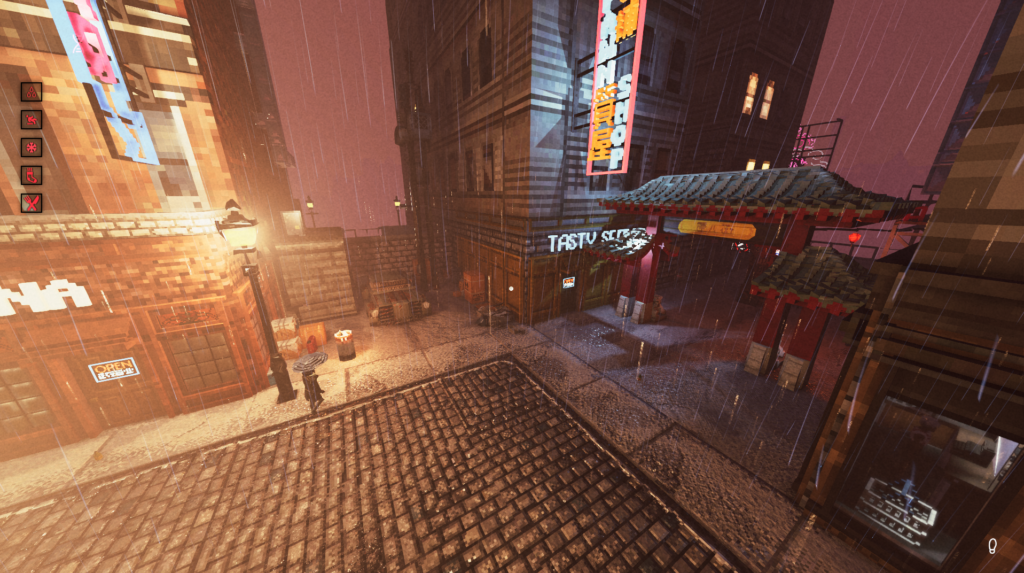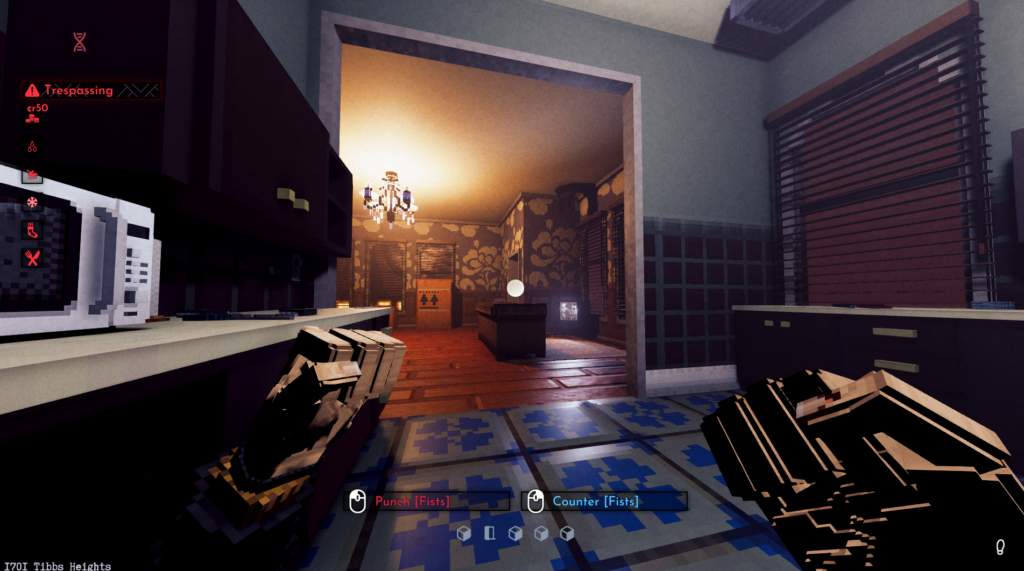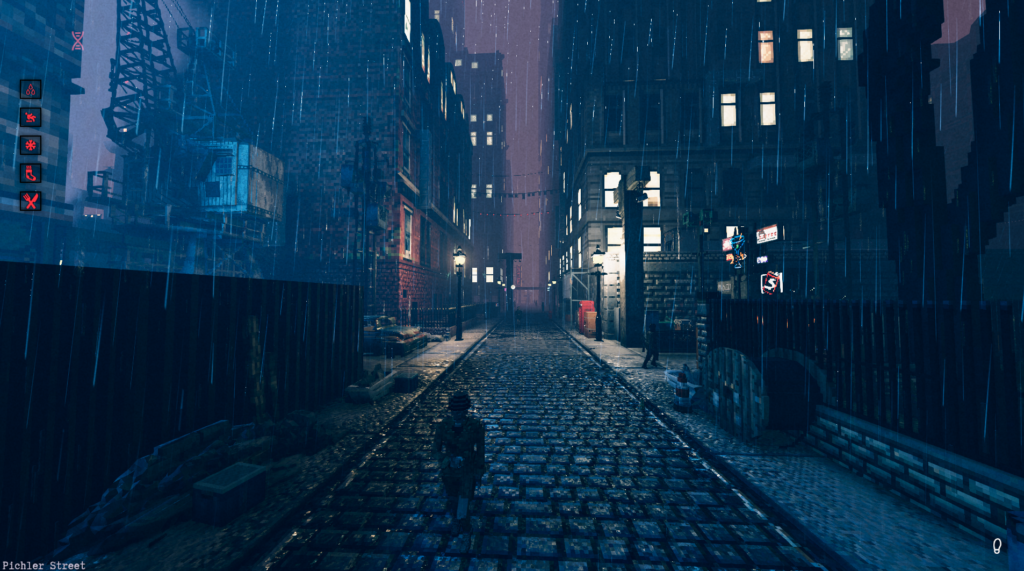Shadows of Doubt DevBlog #39: Content & Consoles
Shadows of Doubt is a detective stealth game set in a fully-simulated sci-fi metropolis! There’s been a murder and it’s up to you to solve it by any means necessary, with the condition that you keep a low profile. A unique mix of procedural generation and hand-crafted design enables every room of every building to be explored. Be sure to wishlist on Steam, join our Discord or read previous dev blog entries here!
Hello detectives! It’s time for a new dev blog as it’s an exciting point in the year. As you may have seen from the Triple-i Initiative showcase; Shadow of Doubt will be coming to both PS5 and Xbox series S and X when we leave early access. Stay tuned for more info on that as the year progresses.
Not only that though, I’m excited to announce our first major content update of the year titled ‘Sharpshooter Assassin’ which launched today also. You can read the full list of changes here. This is the largest content update yet; the main focus of it is two new killer variants, both based on a killer that will kill from range. Prepare to study bullet trajectories to hunt down vantage points across the city! The goal behind this is to inject the main serial killer cases with more variety, and you’ll have to alter your detective approach a bit to accommodate these killer types.
Alongside that, there are two new building types; a mixed-use industrial building and the often-referenced-to-in-lore ‘Fathoms’ which is a kind of slum/shanty town. At the opposite end of the social class spectrum, we also have new gated communities found at the tops of skyscrapers, where land values are at their highest. You’ll need special access to visit here (well legally anyway). I hope you have fun exploring the new city geography!
In addition to this, we have the introduction of social credit level perks. These have been on the cards for a while (previously the social levels were not used for anything apart from ending the game through retirement). Now each level has a small perk attached. I don’t want to spoil them all because I think they’re going to be fun to discover but I hope it gives new gameplay incentive and meaning towards gaining that precious social credit score.
There’s a bunch of other stuff in this update too, including reduced city generation time, steam cards and more but the last thing I’ll talk about here is the addition of an ‘auto travel’ feature. This is something I’ve wanted to put into the game for ages, but only now have found the time. The auto travel feature is a little like fast travel, but instead of teleporting to your destination, your character will automatically find their way to wherever you want to go.
Crucially, while auto travelling you can interact with your caseboard without pausing the game. Ever had it where you’re walking someplace and going over something in your head and not really putting much effort into the act of moving around as you know the route so well? This is trying to emulate that, kind of like a detective autopilot. It’s entirely optional of course, I expect some people to use it frequently and others to not, but it’s a feature I’m pretty pleased with. I also expect it could really help to make the game more approachable from an accessibility standpoint, or if you’re a player who is more interested in piecing together the case than physically moving throughout the world. There is a little bit of work left to do here as due to the variety of physical places the player can find themselves in, you can on occasion need to exit auto travel to guide the player yourself. Basic travel works pretty well though.
Auto travel options can be found in the location evidence window, with an additional toggle button found in the map interface.
As frequent players may have noticed, we’ve transitioned from pushing more frequent smaller patches to less frequent but larger patches. Expect this to continue going forward. Over the summer we’re going to have an increased focus on bug fixing, as well as improving controller support to get it up to a better standard. Until next time detectives!




